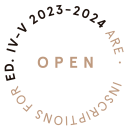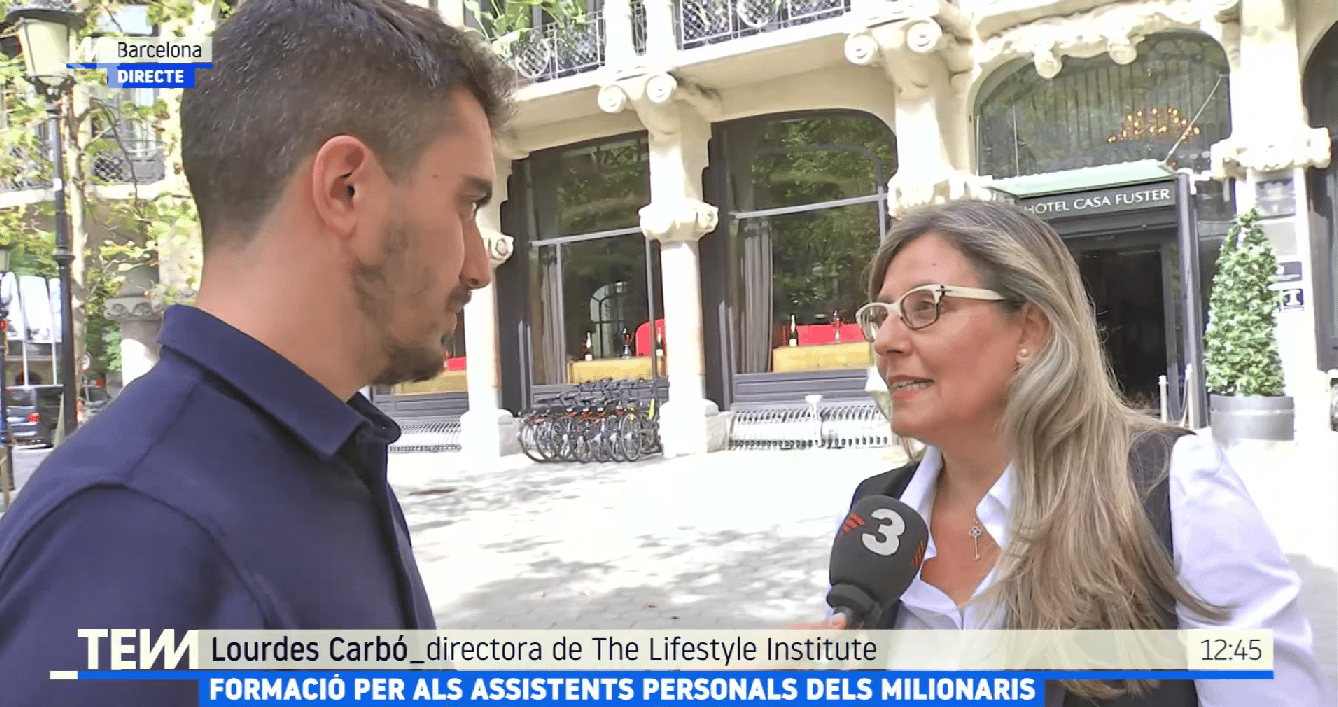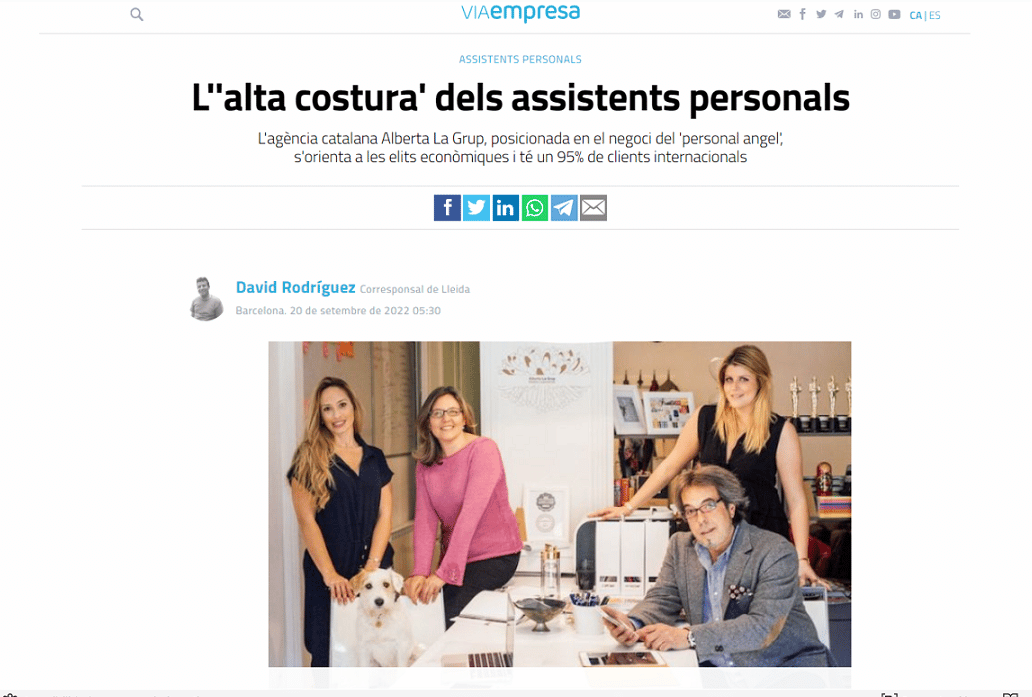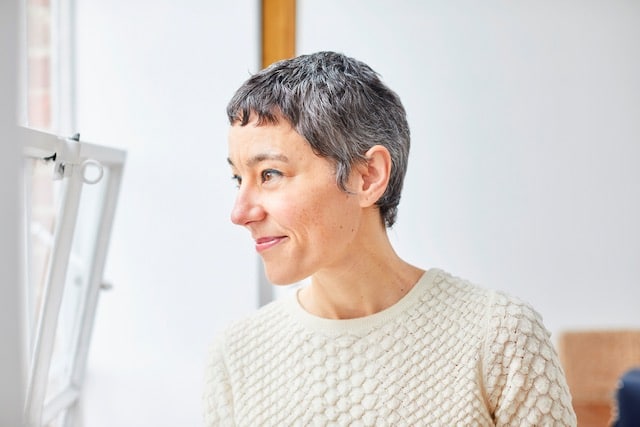Ella es Mayordomo y House Manager PA en una casa particular de Londres, y además, profesora de cuatro módulos del Postgrado de TLI. Se trata de Anuska Lago Rey, con quien tuvimos una interesante conversación acerca de la importancia de la formación, de su amplia experiencia en la enseñanza en alto rendimiento y, por supuesto, de diversas curiosidades que te encantará conocer, tanto si estás planteándote dedicarte a esto como si estás pensando en contratar un Personal Angel; o a ti, que necesitas saber más acerca de este apasionante mundo.
Para comenzar esta charla con Anuska, queremos te contamos más cosas sobre su trayectoria: tal y como te hemos adelantado, actualmente vive en Londres, donde trabaja como House Manager-PA-Butler en casas privadas. La calidad, el servicio y la gestión rigen su vida, lo que explica su salto profesional al servicio privado en 2016. Comenzó su carrera en el sector de la hostelería, ascendiendo a Directora General de Hotel, para poner en marcha dos complejos turísticos. Las finanzas, la gestión del personal, las operaciones del hotel y las relaciones con los huéspedes han conformado su día a día a lo largo de casi 15 años.
-Ahora sí, Anuska, para dar el pistoletazo de salida a esta entrevista, ¿podrías explicarnos cómo es tu día a día profesional? ¿Cuáles son tus funciones y qué te llevó a dedicarte a ello y, en definitiva, a donde estás ahora?
Mis funciones son: el día a día de la casa, es decir, encargarme de que todo funcione bien y salga adelante; y por otra parte, asistente personal. No hay un porcentaje… Hay días que hago un 10% y un 90%; otros, que hago un 50-50%. Ello depende del día de la semana. Puedes hacer una previsión pero luego durante el día surgen muchísimas cosas que hacen cambiar la prioridad de tus tareas durante el día. Esas serían las dos ramas básicas: el house management (toda la operativa de la casa, gestión de personal, eventos, compras, actividades de niños…); y todo lo que pide el cliente (para sus propiedades, su familia, cosas de algunos memberships, etcétera). En cuanto al día a día, yo los lunes veo toda la programación que hay para esa semana para hacerme una previsión. Y después, a lo largo del día, veo los emails, WhatsApps, y organizo la jornada, siempre teniendo una rutina que has de mantener. De lo contrario, sería un caos. Has de mantener una disciplina, teniendo ciertos puntos inamovibles, aunque los cambios son continuos y has de tener flexibilidad para no agobiarte por ello. Respecto a la rutina diaria, una vez puedo programar lo que hay en la casa, hablo con el personal, gestiono horas de comida, cena y eventos, lavandería… También ando por la casa arriba y abajo cuando ellos no están, chequeo email y teléfono constantemente porque es un ‘chorreo’ continuo de mensajes. Otro tema importante es chequear una vez que se ha realizado una tarea, comprobando que realmente se ha ejecutado.
-Como profesora en el Postgrado de asignaturas como Gestión de residencias para los UHNWI y Etiqueta en la mesa, ¿cómo dirías que es de importante la formación para para dedicarse al mundo del Lifestyle Management?
La formación es fundamental. A no ser que tengas ya experiencia porque has empezado a trabajar desde muy joven o tengas la capacidad de ir aprendiendo y absorber toda la información que estás recibiendo, necesitas formación. Es muy bueno tener a alguien que te abra puertas. En este caso, los profesores, quienes te van a proporcionar otros caminos. Y luego, es tu decisión la dirección que vayas a tomar después… Es decir, si te especializas o te dedicas a otra cosa. Pero sin la formación es imposible avanzar, a no ser que seas un cerebrito (bromea) y sepas aprender bien de la gente que te rodea.
–Después de la formación viene la experiencia. ¿En qué grado dirías que son importantes ambos factores?
Creo que son los dos importantes, al 50%. Yo me he encontrado con casos de gente que tiene mucha experiencia y poca formación; saben hacer el trabajo pero se niegan a los cambios porque llevan 15 años ejerciendo su labor de una manera determinada y les funciona bien, con lo cual, son poco flexibles y quieren seguir haciendo todo a su manera. Y, por otro lado, me he encontrado a gente que tiene muy buena formación pero luego he empezado a trabajar con ellos y son difíciles o no saben comunicar, ocultan información para ellos o no trabajan bien en equipo. Con lo cual, creo que tiene que haber una combinación.
Para mi, la base (da igual si tienes experiencia o no) es la personalidad de cada uno y sus habilidades. Ese es el quid cada vez que contrato a gente. No contrato por una cosa o por otra (formación o experiencia). Lo primero es la persona, y entonces, valoro la experiencia y formación, y veo cómo complementarlo una vez contratados, dándole importancia en un 50%.
“La base para ejercer esta profesión -da igual si tienes experiencia o no- es la personalidad de cada uno y sus habilidades”
-Y volviendo a la formación, qué claves dirías que ha de saber todo PA o Residential Concierge en su proceso de adquisición de conocimientos en el Postgrado?
Lo primero es hacerse cada uno un análisis DAFO, preguntándote qué es lo que te gusta de esta profesión, en qué eres bueno… Y otra cuestión que debes hacerte es, una vez que entras, has de tener claro que tienes que estar abierto a aprender muchas cosas que igual tienes interés 0, pero el abanico es tan amplio que tienes que absorber un poco de todo y, más adelante, cuando estés en una situación en la que tú puedas elegir, ya lo haces. Cuando empiezas de 0 no puedes elegir porque tienes que aprender temas tan diversos como saber cómo funciona un edificio, bastante informática, domótica, aire acondicionado en las casas, piscinas, el control de plagas, jets privados, clubs, mantenimiento de ropa, gestionar distintas propiedades y al personal… Has de tener una idea mínima de cómo funciona todo. Y esto es lo que se tiene que cuestionar el alumno antes de entrar.
Y en otro plano quedaría el tiempo, ya que es una profesión muy parecida a la hostelería donde no hay horarios, a no ser que tengas un puesto base en el que sí tengas turnos, como los recepcionistas de hotel o las camareras de piso. Sin embargo, si eres jefe de departamento o PA, no es una jornada de lunes a viernes de 9 a 18.00. La flexibilidad de horarios es otra de las cuestiones que ha de plantearse el estudiante.
-De las asignaturas que impartes, ¿cómo podrías definir cada una de estas en breves palabras?
Yo imparto cuatro módulos. El primero es ‘Cómo trabajar en una casa privada’; el segundo es ‘PA (Personal Angel)’; el tercero es ‘Mayordomo’ y el cuarto es ‘Lavandería y limpieza’. El primero consiste en toda la operativa de una casa, la estructura que hay, la gente con la que te relacionas cada día, los departamentos y lo más básico. En el segundo, el de PA, cuento un montón de ejemplos reales que me han ocurrido a mi, con el objetivo de que vean la cantidad de temas que se tratan. En el de ‘Mayordomo’ doy más teoría porque en general no se conoce lo que es realmente esta figura. No tiene nada que ver con ser camarero ni consiste en servir mesas. De hecho, es totalmente distinto. Aquí doy proveedores, cómo montarse una mesa, cómo dar un servicio, cómo entras y sales de una habitación, actitud, cómo gestionar pedidos, turnos, tejidos, etcétera. Y el de lavandería y limpieza consiste en explicación de la estructura, de los tejidos, de los guardarropas, el cambio de armario, lavandería externa e interna, personal con el que tratas, turnos que se deben hacer y el calendario de todas las familias, quién elige la cubertería y la mantelería que vas a servir en cada servicio de comida…
-Curiosidades o anécdotas con las que te hayas encontrado dando formación o en tu día a día profesional.
Los estudiantes, cuando empiezan, no saben nada del mundo de los mayordomos. De los PAs sí que tienen algo de idea. Me acuerdo de un curso que hice antes de mudarme a Inglaterra para trabajar como Mayordomo; yo me leía todos los libros que encontraba en el mercado porque tenía curiosidad y quería saber cuanto más, mejor. Veo que aquí la gente empieza el curso y viene de 0 pero tampoco venían preparados en la materia. Y esto es lo que me sorprende como curiosidad. Otra anécdota reciente en Londres es que habíamos quedado en la puerta de una embajada, llegando por separado. Nos encontramos fuera para hacer un papeleo, pues yo llevaba la documentación y la representaba. Ella venía solamente a firmar. Entramos y el señor que nos atendió de la Embajada me hablaba a mi todo el rato y se pensaba que era yo mi clienta y que ella era amiga mía o una hija de la familia porque yo venía vestida formal y de trabajo y ella con una camiseta, unos leggins y unas chanclas.
Y la tercera es que una familia para lo que yo trabajé estaba convencida del todo de que la casa tenía fantasmas. Era un asunto serio. No nos avisaron a nadie y, la misma tarde, aparecieron en la puerta vestidos de negro con unas viseras negras. Había un programa parecido en la TV y yo es lo primero que pensé. Y llevaban unas bombonas de gas en la espalda. Me dijeron que venían a la casa que tenían una cita. Y les cerré la puerta dos veces porque yo no sabía nada. Contacté con mi clienta y me dijo: “sí, sí, hazles pasar por la puerta principal”. Les abrí la puerta, entraron, y resultó que venían a matar a los fantasmas habitación por habitación. A esa hora estábamos alrededor de 12 personas de personal, exceptuando a los de seguridad. Y a todos ellos los tuve que mover de estancia a estancia. La cuestión fue que todo el mundo me preguntaba que qué pasaba y yo no les quería decir la verdad. De hecho, dije que eran órdenes de arriba y poco más. Y que esto no se podía contar fuera de allí.
“Si te gusta el management y el servicio, y además, te agrada la calidad, los estándares y el lujo, ser PA es una profesión perfecta”
-A aquellos indecisos que empiezan a ver el mundo del Lifestyle Management y de PA privado como opción profesional, ¿cómo decirles que se lancen?
Que se lancen ya, que no se lo piensen mucho pues es una profesión apasionante porque es de las pocas que combinan management con servicio. Si te gustan ambos, y aparte, te agrada la calidad, los estándares y el lujo es una profesión perfecta. Una vez entras y te arrepientes o hay algo que no es como tú pensabas, no importa… ¡No te preocupes! Una vez entras hay tantos donde moverte una vez estás inmerso… Si prefieres un trabajo más estable o de oficina puedes pasarte al Family Office o puedes pedir el traslado a una casa que tengan de segunda o tercera residencia, donde tienes un horario de oficina cuando no están ellos, y cuando están, estás ‘full time’. Hay tanto campo que -para mi-realmente es apasionante. Sobre todo, porque ves cosas que no verías de otra manera, estando en un entorno muy único y especial, siempre aprendiendo cosas, viendo algo nuevo y estando muy al día. A lo que menos importancia le doy es a conocer gente famosa. Para mi lo importante es que si tienes unas habilidades en servicio privado te vas a realizar porque llegas a unos estándares muy altos y te rodeas de grandes profesionales. Esto es lo que más motiva porque te impulsa a seguir hacia arriba y mejorar en tu trabajo. Y es muy agradecido porque la familia es muy agradecida cuando encuentra a gente que vale, motivada y entregada. Y tú eres un motor para todo el equipo pues has llegado a un puesto de responsabilidad en el que la gente te mira, es muy gratificante. No creo que haya ninguna empresa que combine estos dos factores.
Copyright © by Alberta La Grup. If you wish to re-print this article or photos, that’s fine. Just include the biography at the end of the article. Thank you!
Translation: Emily Benton







